The Chairman of the Economic Committee said that not only are housing prices too high, but the lack of rental segment also makes it difficult for workers to access low-cost social housing.
At the discussion session of the revised Housing Law on June 19, delegates Nguyen Van Hien and Nguyen Lam Thanh said that workers have the right to rent social housing instead of buying as they do now. Expanding social housing rental projects will help low-income people reduce their financial burden and increase their chances of having a place to live.
Responding to VnExpress on the sidelines of the meeting, Chairman of the Economic Committee Vu Hong Thanh agreed with the above view, saying that the housing market in Vietnam is lacking the social housing segment for rent and hire-purchase. The demand for this type of housing is quite large and also suitable for the living standards and income of most workers today.
"Social housing also needs to have different segments. If they have enough money, they can buy, if not, they can rent, and those in the middle can rent to buy," Mr. Thanh said, believing that flexibility is needed to help as many people as possible access social housing.

Chairman of the Economic Committee Vu Hong Thanh. Photo: National Assembly Media
He cited the example of Western countries where social housing leasing is implemented quite effectively. Most students and people who have just started working do not have enough money to buy a house, so they work and pay in installments over several decades.
To attract businesses to implement social housing rental projects, the Chairman of the Economic Committee said that many solutions need to be synchronized. In particular, the most important are preferential policies and planning work. Localities must clearly identify which areas are for middle- and high-end housing, and which areas are for social housing. Project procedures must also be shortened, to avoid the situation where "projects take several years to complete procedures".
Mr. Vu Hong Thanh also proposed that each social housing project should have a mechanism to set aside about 20% of the land fund for commercial purposes, to compensate for investors' profits and increase attractiveness. "Through understanding, many businesses also hope to have this mechanism. The profits earned can help them reduce costs, selling prices and make social housing more accessible to people," Mr. Thanh stated his opinion.
Also stating that "the housing market segment is very unbalanced", Mr. Nguyen Truong Giang, Deputy Secretary General of the National Assembly, Deputy Chairman of the Law Committee, compared that over the past 10 years, social housing prices have increased by 10-20 million VND/m2 while workers' incomes have remained almost unchanged, meaning that social housing is increasingly out of reach for low-income people. The problem is not necessarily due to the fact that preferential policies are not attractive enough, but that the development of social housing in the form of subsidies is no longer suitable.
"Social housing is currently subsidized by credit policies, taxes, and land allocation without land use fees. This policy can reduce social housing prices, but is it a sustainable approach? How long can the government continue to subsidize?", Mr. Giang questioned.
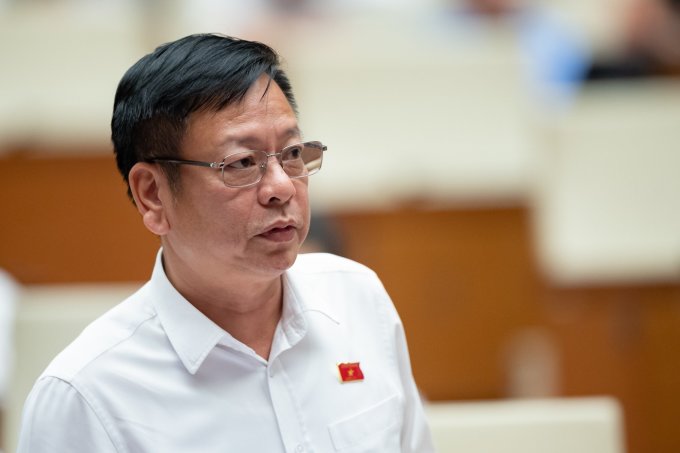
Mr. Nguyen Truong Giang, Deputy Secretary General of the National Assembly, Deputy Chairman of the Law Committee. Photo: National Assembly Media
In the 2013-2016 period, the VND30,000 billion credit package to support social housing and low-cost commercial housing was implemented, but its effectiveness was only initial and gradually decreased. Mr. Giang said that this is proof that the effectiveness of direct support from the budget for the housing market is not long-term, especially in the current context.
Agreeing on the need to change the approach, Mr. Giang stated that ownership should only account for a very small proportion of the social housing market, instead, rental housing should be used. To do this, policies need to be consistent with the goals, creating incentives for investors and the State needs to act as a bridge for businesses to rent.
Regarding the opinion that the social housing construction sector for rent does not attract investors because it is impossible to "buy outright and sell in installments" and recover capital quickly, Mr. Giang said that this is not a big obstacle. "The private sector has been very successful with the mini apartment model, besides, the demand for this type of housing is very large, it is not difficult to attract businesses," Mr. Giang analyzed.
Professor Nguyen Dang Dung, Vice Chairman of the Advisory Council for Democracy and Law, Vietnam Fatherland Front Committee, also agreed that it is necessary to expand the rental housing market. The solution comes not only from the State's preferential mechanism but also from the commitment and responsibility of employers. "Large enterprises, even foreign enterprises, when coming to Vietnam, only care about cheap labor. They do not or pay very little attention to the lives of workers," he said.
Industrial zones have a fairly effective operating model of housing for workers to rent or stay. Mr. Dung believes that if this model is taken out of industrial zones, it will almost be a form of social housing for rent. Therefore, it is necessary to change policies for employers, requiring them to ensure more conditions for food, accommodation and living for workers before investing in Vietnam.
Source link



![[Photo] Nhan Dan Newspaper launches “Fatherland in the Heart: The Concert Film”](https://vphoto.vietnam.vn/thumb/1200x675/vietnam/resource/IMAGE/2025/10/16/1760622132545_thiet-ke-chua-co-ten-36-png.webp)
![[Photo] General Secretary To Lam attends the 18th Hanoi Party Congress, term 2025-2030](https://vphoto.vietnam.vn/thumb/1200x675/vietnam/resource/IMAGE/2025/10/16/1760581023342_cover-0367-jpg.webp)



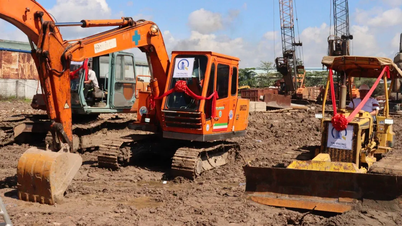

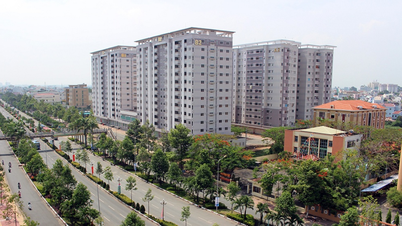



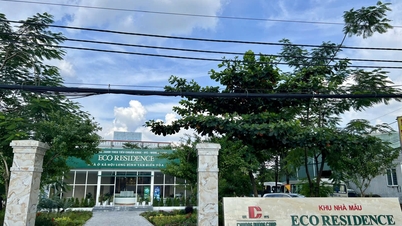

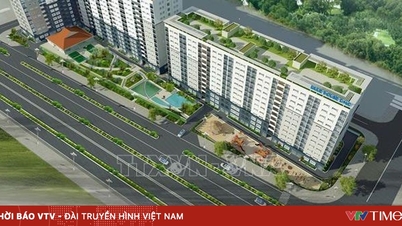

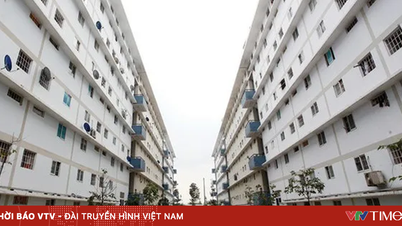




























![[Video] TripAdvisor honors many famous attractions of Ninh Binh](https://vphoto.vietnam.vn/thumb/402x226/vietnam/resource/IMAGE/2025/10/16/1760574721908_vinh-danh-ninh-binh-7368-jpg.webp)
























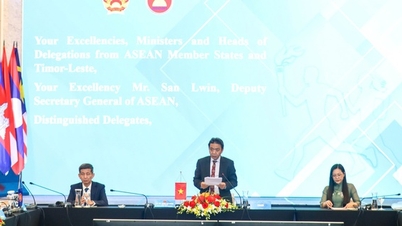

![[Photo] Nhan Dan Newspaper launches “Fatherland in the Heart: The Concert Film”](https://vphoto.vietnam.vn/thumb/402x226/vietnam/resource/IMAGE/2025/10/16/1760622132545_thiet-ke-chua-co-ten-36-png.webp)










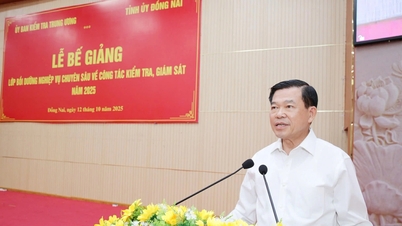


























Comment (0)